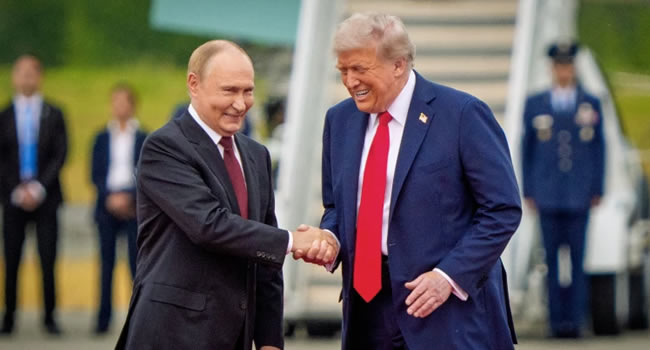On January 20, 2025, Donald Trump will be inaugurated as the 47th president of the United States, marking his return to the White House after a tumultuous four-year absence. This inauguration not only symbolises the transfer of power from the Biden administration but also represents a significant moment in U.S. political history, as Trump becomes only the second president to regain office after losing re-election. As Trump embarks on his second term, many in Nigeria and across Africa are keenly observing how his presidency will impact their nations.

Historical Context and U.S.-Nigeria Relations
Historically, U.S.-Nigeria relations have fluctuated based on the political party in power in the U.S. During Republican administrations, engagements have often focused on trade, investment, and military support, while Democratic administrations have emphasised democracy, human rights, and development aid. Under Trump’s first presidency, Nigeria received increased military assistance and counterterrorism support, particularly in its fight against Boko Haram and other insurgent groups.
As Trump resumes office, Nigerian President Bola Ahmed Tinubu has already congratulated him, expressing optimism that U.S. leadership will contribute to global peace and prosperity. This sentiment reflects the hope that Trump’s administration might continue to foster strong ties with Nigeria, particularly in security and economic sectors.
Economic Implications
Trump’s transactional approach to foreign policy is likely to influence trade relations between the U.S. and Nigeria. His administration may prioritise bilateral trade agreements over broader initiatives like the African Growth and Opportunity Act (AGOA), which provides duty-free access to U.S. markets for eligible African countries. This shift could benefit countries that secure favourable deals while potentially sidelining those with less negotiating power.

Moreover, Trump’s focus on oil and gas investments aligns with Nigeria’s economic interests as one of Africa’s largest oil producers. Increased U.S. investments in these sectors could stimulate economic growth in Nigeria but may also lead to tensions regarding environmental policies and climate change initiatives.
Security Considerations
Under Trump’s leadership, there is potential for continued military support for counterterrorism efforts in Nigeria and other African nations facing security challenges. His administration’s emphasis on combating terrorism aligns with Nigeria’s ongoing struggles against insurgent groups. However, it remains uncertain whether this support will extend to ground troop deployments or be limited to military aid and training.
Concerns Over Democracy and Human Rights
One of the significant concerns regarding Trump’s presidency is his historical stance on democracy and human rights. His admiration for autocratic leaders raises apprehensions about how he will engage with African nations struggling with governance issues. Critics fear that a lack of emphasis on democratic values could undermine progress in countries striving for political reform.
Additionally, Trump’s strict immigration policies may affect the African diaspora in the U.S., complicating family reunifications and remittances that are vital for many African economies.
As Donald Trump begins his second term as president, the implications for Nigeria and Africa are multifaceted. While there are opportunities for enhanced security cooperation and economic engagement, concerns about democratic governance and human rights persist. The evolving dynamics of U.S.-Africa relations under Trump’s leadership will require careful navigation by Nigerian officials as they seek to leverage potential benefits while addressing challenges that may arise during his presidency. As events unfold, both Nigeria and Africa will be closely monitoring how Trump’s policies shape their futures on the global stage.

By Joseph Johnston,
Youth Editor,
Egogonews Hub




